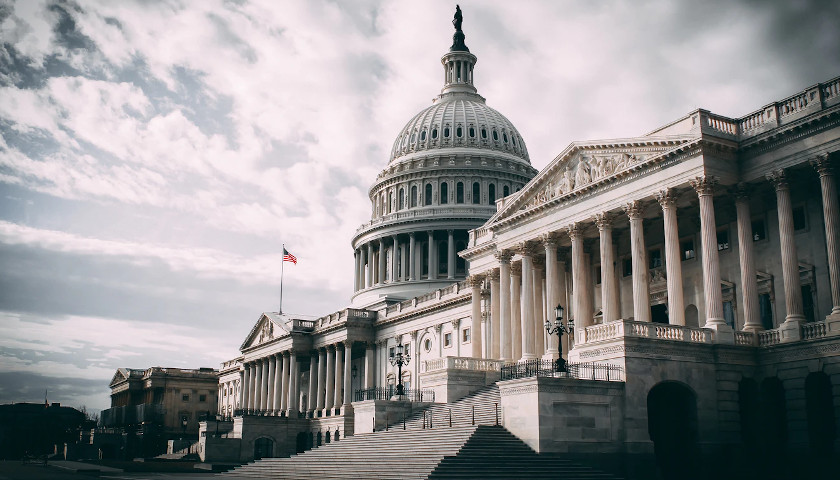by JC Bowman
In America, we tend to structure our political conversations in the framework of Republicans versus Democrats. That is a false dichotomy. Most believe in limiting government to some extent, often disagreeing on the proper role of government, especially economically. Working-class citizens, including public servants like educators, feel politically isolated.
On one hand, most educators espouse traditional middle-class values. On the other hand, they embrace a life of serving the public. They are swing voters, currently feeling disenfranchised by both political parties. Their political decisions can change the outcome of an election.
Our country has thrived in an economic system where people make economic decisions individually, and our government places very few restrictions on ownership or the types of business activities that we can have. This is known by various names: free enterprise system, capitalism, and/or free market. It is also critical that we have checks and balances for the government to work.
The free enterprise system isn’t perfect, but most conservatives believe it is better than anything else put forth for growing an economy. Many progressives still subscribe to the basic tenets of capitalism in their personal and professional lives. Contrast that a 2015 interview in The Atlantic, where Bill Gates is critical of the free market, sees representative democracy as a “problem,” yet is supportive of growing government. His money is so coveted by some advocacy organizations that often his ideas escape a normal vetting process for policymakers. Some have argued that the donations of his priority areas have caused additional dollars to not go toward other, more critical areas of need. Gates is pushing his agenda.
In Tennessee, Bill Gates, through his advocacy philanthropy, has driven considerable education reform under the radar. To be trustworthy, advocacy philanthropy needs to be transparent. According to the Federalist, “the Bill and Melinda Gates Foundation spent hundreds of millions of dollars to write Common Core, write tests and curriculum matching it, successfully lobby federal and state officials to make it mandatory.”
Tennessee has now spent several years trying to disentangle itself from Common Core, but efforts have been somewhat thwarted by the use of supplemental materials and pilot projects, even as legislation has been passed to disengage from the advocacy of philanthropic groups and Race to the Top monies. The outcome of that battle will shape our culture and politics for years. Groups upset with public education are missing the “man behind the curtain.”
What has been remarkable is that Gates and others have done much of this through a Republican-led legislature. Limited government and local control of schools has sometimes been tossed on the dustbins of history. The Tennessean points out in a well-written article: “Bill and Melinda Gates Foundation — a heavy backer of both the Education Trust and SCORE — has also pumped more than $525,000 into the state in the past four months to organizations supporting funding formula reform work.”
While teacher union donations to various progressive causes and candidates are alarming, we should be even more concerned by tax-exempt political activism by groups like the Gates Foundation. We should work to amplify public engagement from across Tennessee by developing a student-focused public school funding strategy, but it must be truly represented by Tennessee citizens.
Many of our current education policies have been driven by government intervention at the expense of parents, teachers, taxpayers, local communities, schools, districts, and legitimate grassroots reforms by lobbying efforts by some groups. Many would argue quasi-public entities like the Education Trust and SCORE, and a handful of bureaucrats, should not be allowed to influence so much public money or access to specific data. This distorts and exploits the free enterprise system and needs greater oversight. We need to ask more insightful questions of these groups and where their funding comes from, and better connect the dots.
In the Federalist article, Joy Pullmann cites the 2017 book, Deconstructing the Administrative State, which offers numerous cases of business and government interest groups constructing advocacy organizations that submerge citizen voices by claiming falsely to represent ‘stakeholders,’ allowing alternative views to dominate public policy discussions. Pullman states: “Just as Gates funded the majority of people testifying at state legislatures in favor of Common Core, the majority of so-called ‘stakeholders’ in public affairs are really just sock puppets manufactured and controlled by the same special interests behind the scenes.” This orchestrated charade is played out time and time again in crafting recent state policy.
Gara LaMarche also points out in The Atlantic: “Progressives are hypersensitive to the way the big money in politics perpetuates advantage and inequality, but seem blind to the dangers posed by largely unaccountable donors.” He sounded the “excessive focus on self-interest” alarm in regards to “the legitimacy of philanthropy in its engagement with the democratic process.”
Theodore Roosevelt identified the problem years ago: “Behind the ostensible government sits enthroned an invisible government owing no allegiance and acknowledging no responsibility to the people. To destroy this invisible government, to befoul the unholy alliance between corrupt business and corrupt politics is the first task of the statesmanship of today.”
There is little doubt that philanthropy has solved some important problems in this world. Policymakers and stakeholders alike must avoid government overreach in many policy areas. However, we must also limit advocacy philanthropy and welcome real public engagement into policymaking decisions. Whether it’s Bill Gates, George Soros, Warren Buffett, or any other philanthropist trying to shape public policy, we must begin to push back. We need more media scrutiny to enhance accountability for advocacy philanthropy.
In funding our schools, the only way to create future education policies that are clear, inclusive, and child-centered is to make sure that the debate cannot be driven by quasi-public entities promoting a particular pre-determined that often disenfranchises legitimate stakeholders. However, we must create a better funding plan and formula that reflects our state’s modern educational mission, priorities, and strategies.
To paraphrase another Roosevelt quote: “Are the American people fit to govern themselves, to rule themselves, to control themselves? I believe they are.” Not all people agree with that philosophy, and many of those are the ones controlling public policies from behind the curtain in the invisible government.
– – –
JC Bowman is the executive director of Professional Educators of Tennessee a non-partisan education association headquartered in Nashville, Tennessee.





